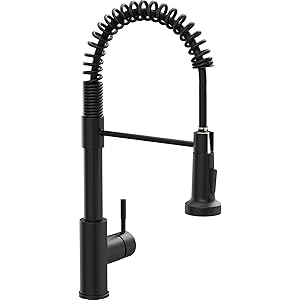As I sat down to write this article, I found myself reflecting on the many misconceptions surrounding the terms “trailer home” and “mobile home.” It’s a topic that often sparks debate and confusion among those looking to explore affordable housing options. In my journey, I’ve come across numerous definitions, experiences, and stories that have shaped my understanding of these two types of housing. Today, I invite you to join me as we delve deep into the nuances of trailer homes and mobile homes, unraveling the truth behind these terms.
The Evolution of Mobile Homes
To truly understand whether trailer homes and mobile homes are the same, we need to take a step back and explore the history of mobile homes. The term “mobile home” originated in the 1920s, but it wasn’t until the post-World War II era that these homes gained popularity. With returning veterans seeking affordable housing, manufacturers began producing homes that could be easily transported.
In 1976, the U.S. Department of Housing and Urban Development (HUD) established regulations for mobile homes, leading to a significant change in how these homes were constructed and classified. The term “manufactured home” replaced “mobile home” to reflect the homes’ adherence to specific building codes. This distinction is vital in our discussion.
Understanding Trailer Homes
Often used interchangeably with mobile homes, the term “trailer home” typically refers to older models that predate the HUD standards. These homes are often seen as less desirable due to their construction methods and lack of modern amenities.
Trailer homes were primarily designed for temporary living arrangements, often associated with travel or transient lifestyles. However, many people have made these homes their permanent residences, leading to a mix of perceptions regarding their value and quality.
Key Differences Between Mobile Homes and Trailer Homes
While the terms are often used interchangeably, several key differences set mobile homes apart from trailer homes:
- Construction Standards: Mobile homes must meet HUD standards, while trailer homes may not.
- Age and Design: Trailer homes tend to be older, often exhibiting outdated designs, whereas mobile homes are typically more modern.
- Value Appreciation: Mobile homes generally appreciate in value over time, while trailer homes may depreciate.
- Community Regulations: Many mobile home parks have regulations that enhance living standards, which may not apply to trailer home communities.
The Financial Aspect
One of the most attractive features of mobile and trailer homes is their affordability. According to the U.S. Census Bureau, the average cost of a mobile home is significantly lower than that of a traditional site-built home. However, the distinction in value appreciation between mobile homes and trailer homes can greatly affect long-term financial planning.
For instance, a mobile home purchased in a well-maintained park may appreciate over time, offering homeowners a return on their investment. In contrast, trailer homes often depreciate, leading to potential losses for owners.
Case Studies: Real-Life Experiences
To provide a more comprehensive understanding, let me share a couple of real-life experiences that highlight the distinctions between trailer homes and mobile homes.
First, consider Jane, a retiree who purchased a mobile home in a well-maintained park. She loves the community aspects, including social events and well-kept amenities. After living there for five years, she found that her home’s value had increased, allowing her to consider selling it for a profit.
On the other hand, there’s Tom, who bought a trailer home in a less regulated area. While he enjoyed the lower initial cost, he soon discovered that the community lacked maintenance, leading to a decline in his home’s value. After several years, Tom faced challenges selling his home, resulting in financial strain.
Legal Considerations
Understanding the legal aspects of mobile and trailer homes is crucial for potential buyers. Mobile homes are protected under specific federal laws, providing rights to homeowners that trailer homes might not have. For instance, mobile home owners often have clearer avenues for addressing issues such as park regulations and tenant rights.
In contrast, trailer homes may not have the same legal protections, placing owners at a disadvantage if disputes arise. It’s essential to research local laws and regulations before purchasing any type of manufactured housing.
Community and Lifestyle
The lifestyle associated with living in a mobile home versus a trailer home can differ significantly. Mobile home parks often offer a sense of community with organized activities, shared amenities, and a focus on maintaining property values. This environment can foster connections and friendships among residents.
Trailer home communities, however, may lack these organized activities and regulations, leading to a less cohesive living experience. While some individuals may appreciate the freedom and lower costs associated with trailer homes, others may find the lack of community engagement isolating.
Environmental Impact
As we become increasingly aware of our environmental footprint, it’s essential to consider the sustainability of our housing choices. Mobile homes, especially newer models, often come equipped with energy-efficient features that reduce their environmental impact. Moreover, many manufacturers are now focusing on sustainable materials and practices in their construction.
Trailer homes, particularly older models, may not have the same energy efficiency, leading to higher utility costs and a greater environmental impact. If sustainability is a priority for you, investing in a modern mobile home may be the better choice.
Common Misconceptions
Throughout my research, I encountered several misconceptions that merit clarification:
- All trailer homes are inferior: While many older trailer homes may have issues, modern mobile homes can be quite luxurious and well-built.
- Mobile homes are always on wheels: Many mobile homes are placed on permanent foundations, blurring the line between them and traditional homes.
- Living in a mobile home means sacrificing quality: Today’s mobile homes are equipped with high-quality materials and amenities that rival traditional homes.
How to Choose the Right Home for You
Choosing between a trailer home and a mobile home can be daunting. Here are some factors to consider:
- Budget: Determine how much you can afford, factoring in both the purchase price and ongoing costs.
- Community: Consider the type of community you desire and whether it aligns with your lifestyle.
- Legal Protections: Research local laws regarding mobile and trailer homes to understand your rights.
- Long-Term Plans: Think about your future plans and whether you intend to stay in the home long-term.
Conclusion
As we conclude this exploration of trailer homes and mobile homes, it’s clear that the two terms refer to different types of housing with distinct characteristics. While both offer affordable living options, understanding the differences in construction, value, and community can help you make an informed decision.
Whether you’re considering a mobile home for its modern amenities and community engagement or a trailer home for its affordability, the choice ultimately depends on your unique needs and lifestyle. I encourage you to weigh the pros and cons, seek out more information, and engage in discussions with current homeowners.
Thank you for joining me on this journey to uncover the truth about trailer homes and mobile homes. If you found this article informative, please share it with your friends and on social media. For more insights and discussions, sign up for our newsletter and continue exploring the world of affordable housing options!
FAQ
1. Are all mobile homes considered trailers?
Not all mobile homes are trailers. The term “mobile home” refers to homes built according to HUD standards, while “trailer” often refers to older models that may not meet those standards.
2. Can I finance a mobile home?
Yes, many lenders offer financing options for mobile homes, especially those that meet HUD standards.
3. What are the advantages of living in a mobile home?
Mobile homes can offer affordability, community living, and modern amenities, making them an attractive option for many people.
4. Do trailer homes appreciate in value?
Generally, trailer homes tend to depreciate, while mobile homes can appreciate in value, especially in well-maintained communities.
5. How can I find a good mobile home community?
Research local listings, read reviews, and visit potential communities to get a sense of the environment and amenities offered.
GIMILI Black Kitchen Faucet with Pull Down Sprayer Single Hole Spring Kitchen Sink Faucet, Suitable for Farmhouses, RV, Utility Laundry Room, Outdoor, and Campers. Llave para fregadero de cocina
$37.59 (as of November 13, 2025 07:53 GMT -03:00 - More infoProduct prices and availability are accurate as of the date/time indicated and are subject to change. Any price and availability information displayed on [relevant Amazon Site(s), as applicable] at the time of purchase will apply to the purchase of this product.)
Sign up for our newsletter and stay up to date with exclusive news
that can transform your routine!





